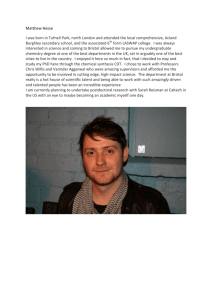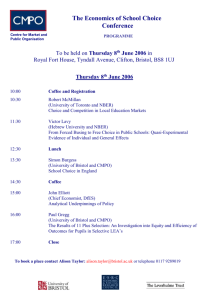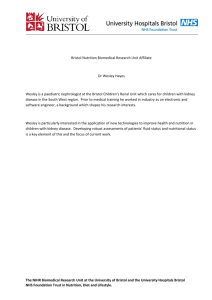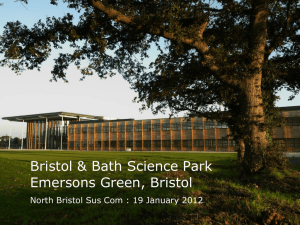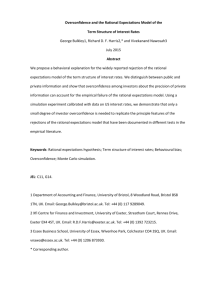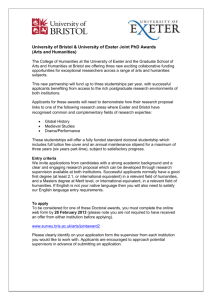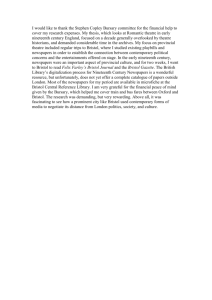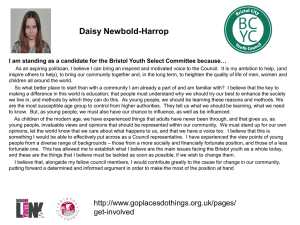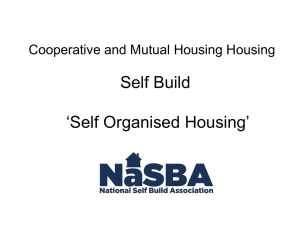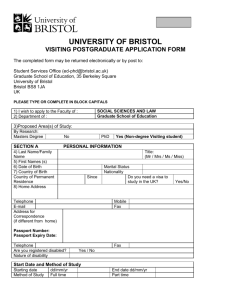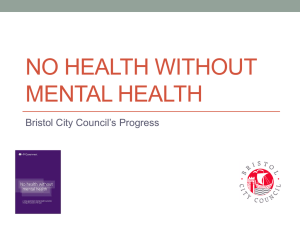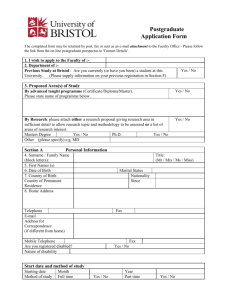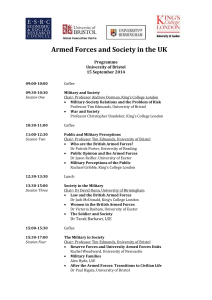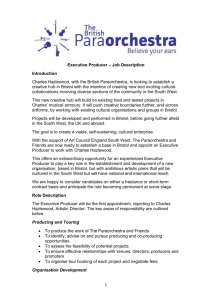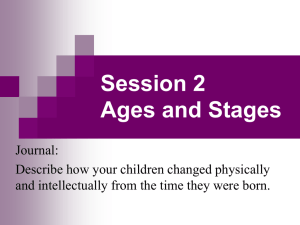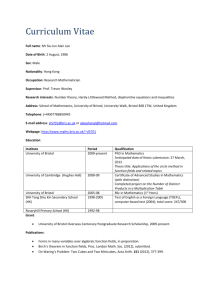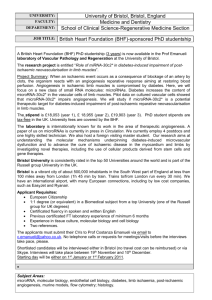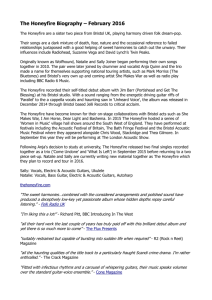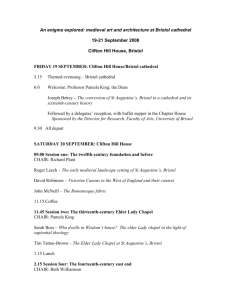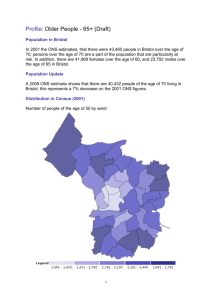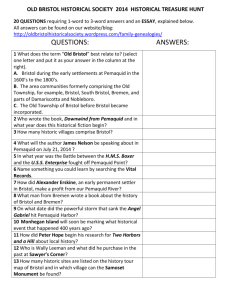full schedule
advertisement
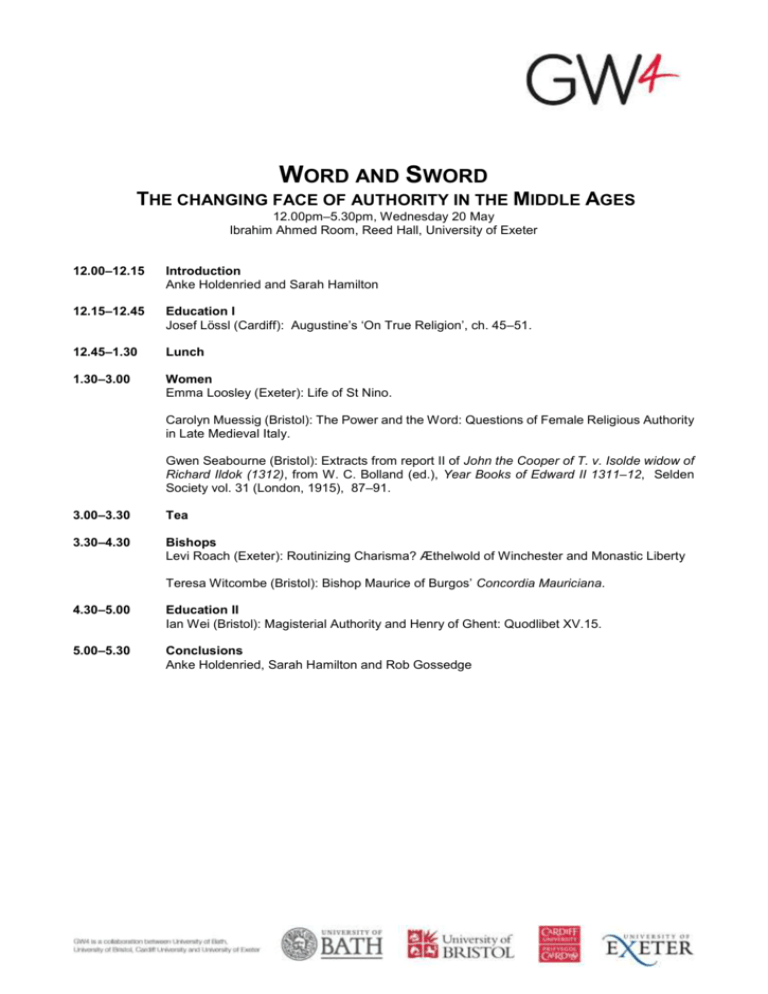
WORD AND SWORD THE CHANGING FACE OF AUTHORITY IN THE MIDDLE AGES 12.00pm–5.30pm, Wednesday 20 May Ibrahim Ahmed Room, Reed Hall, University of Exeter 12.00–12.15 Introduction Anke Holdenried and Sarah Hamilton 12.15–12.45 Education I Josef Lössl (Cardiff): Augustine’s ‘On True Religion’, ch. 45–51. 12.45–1.30 Lunch 1.30–3.00 Women Emma Loosley (Exeter): Life of St Nino. Carolyn Muessig (Bristol): The Power and the Word: Questions of Female Religious Authority in Late Medieval Italy. Gwen Seabourne (Bristol): Extracts from report II of John the Cooper of T. v. Isolde widow of Richard Ildok (1312), from W. C. Bolland (ed.), Year Books of Edward II 1311–12, Selden Society vol. 31 (London, 1915), 87–91. 3.00–3.30 Tea 3.30–4.30 Bishops Levi Roach (Exeter): Routinizing Charisma? Æthelwold of Winchester and Monastic Liberty Teresa Witcombe (Bristol): Bishop Maurice of Burgos’ Concordia Mauriciana. 4.30–5.00 Education II Ian Wei (Bristol): Magisterial Authority and Henry of Ghent: Quodlibet XV.15. 5.00–5.30 Conclusions Anke Holdenried, Sarah Hamilton and Rob Gossedge WORD AND SWORD THE CHANGING FACE OF AUTHORITY IN THE MIDDLE AGES This theme aims to tackle an issue which is at the heart of medieval culture and society: the extent to which the conceptualisation of moral authority changed across the period between Late Antiquity and the sixteenth century. This is a problem which lies at the base of scholarship on the successive educational and pastoral reform movements of the ninth, tenth, eleventh, twelfth, thirteenth and fifteenth centuries, for example. It is one which crosses between those who work on Latin and vernacular texts; between those who work on cultural, religious and social and political movements. It therefore has the potential to encompass a wider variety of scholars working on a variety of texts: from exegesis to law to records to vitae and other literary works. The aim of this workshop is to bring together scholars from different disciplines and periods to identify a common set of research questions. We propose that the workshop is framed around the discussion of seven sources; rather than deliver research papers, the seven lead participants have been asked to introduce a short text from their own research, and to explain how it relates to one or more of the questions suggested as a framework for the initial discussion. Presentations will not be longer than 10 minutes to allow plenty of time for discussion. Several questions have been suggested, and it is hoped that preparation for the workshop and the workshop itself will generate others: What is the relationship, if any, between office and authority? How did office holders conceive and articulate their authority? Does the Weberian binary of charismatic authority v. bureaucracy really work for the Middle Ages? What is the language of authority? Is it consistent across the Middle Ages? How was it promoted? What was the role of education? Overall: How far did the conceptualisation and articulation of moral authority change across the period?
